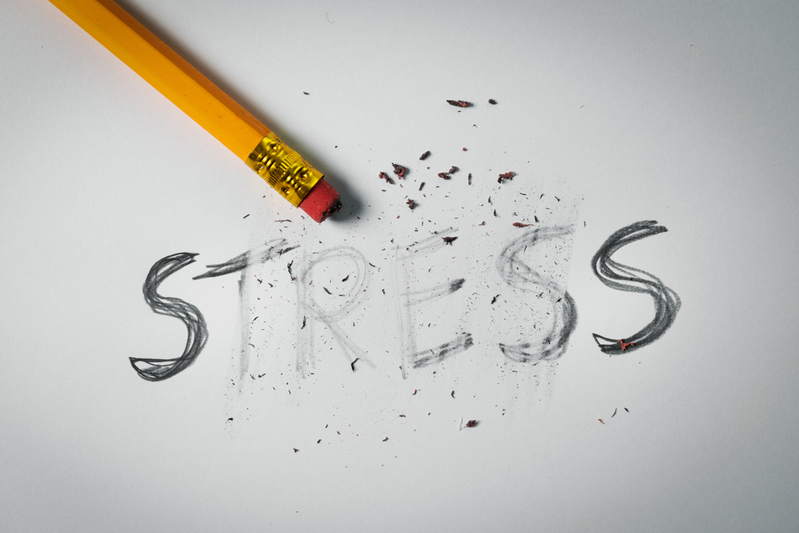Is your job stress starting to affect your work/life balance? Do you feel like you’re constantly on the go and on the verge of burnout? High levels of stress can wreak havoc not just on your mental health but also on your physical health, so it’s important to find ways to combat stress. But we understand that’s easier said than done, so we want to share some of our top stress management tips to help you take control of your health!
1. Take a mood support supplement.
Sometimes, your body needs an extra boost when it comes to your ability to manage stress, and that’s where natural supplements come in! Here are 2 of our best-selling products that are backed by science and contain high-quality ingredients:
- Calm Down: Magnesium, L-theanine, GABA, and taurine make up this powdered supplement drink mix with a natural fruit flavor. This innovative blend supports a relaxed mood and healthy neurotransmitter and messenger functions.
- UnWind: One of the main ingredients of this mood support supplement is Ashwagandha, a plant extract known for its calming effects. It not only helps your body deal with stress but also promotes healthy cortisol levels, restful sleep, and mental clarity.
2. Go for a walk.

One of the best stress management tips is to simply move your body– being outside in the fresh air is a bonus! Consistent physical activity releases hormones that help your body relax, and going for a walk is a great way to change your mindset and mood. Put on your favorite playlist, listen to an audiobook or podcast, or take someone with you and talk. Speaking about how you’re feeling with someone you trust opens the door to identifying and working through stressors!
3. Start a stress journal.
Another great way to identify and find solutions for stress in your life is to start a stress journal. When you start to feel stressed and overwhelmed, write down how you feel, possible causes or triggers, how you respond, and what you did to feel better. This helps to notice patterns and themes, as well as visualize what stress management techniques are or aren’t working for you.
4. Make time for yourself.

High stress levels can often be the result of overcommitting, not delegating tasks and responsibilities when possible, and using unhealthy coping mechanisms like procrastinating, alcohol, scrolling on your phone, etc. Instead, carve out time to do things that you enjoy and learn to say “no” to things that will cause extra stress, whether in your personal or professional life. Time management is also key to breaking down larger projects into more manageable tasks, and you’ll be able to have more time for hobbies and relationships.
5. Don’t self-isolate.
Withdrawing from family and friends is a common stress reaction, but that will only make you feel worse! Forming connections with the people around you helps to reduce your stress and can also contribute to fighting against anxiety and depression. Ideas for reaching out include volunteering in the community, joining a local club, scheduling a weekly dinner date with a loved one or friend, or taking a class or workshop! Most importantly, don’t neglect opening up to those closest to you and find someone you can confide in, whether it’s a therapist, mentor, spouse, etc.
Want more wellness information like these stress management tips? Take a look at our top tips for a healthy lifestyle to learn more about how to improve your overall well-being– even the smallest changes can make the biggest impact!

